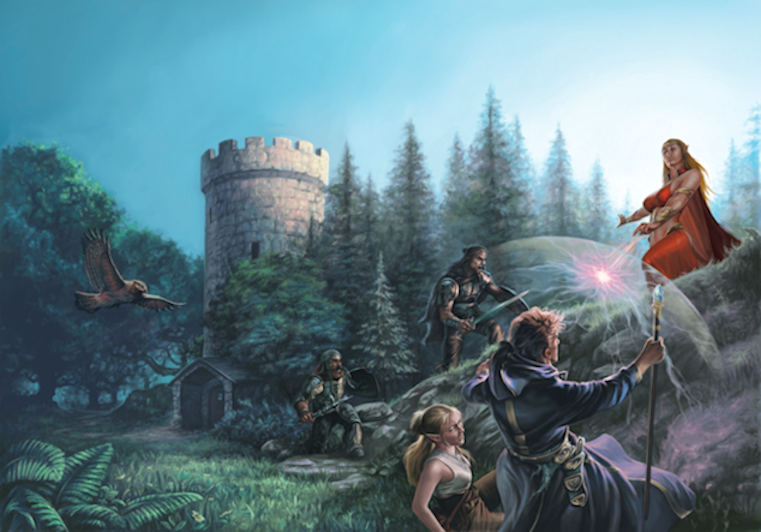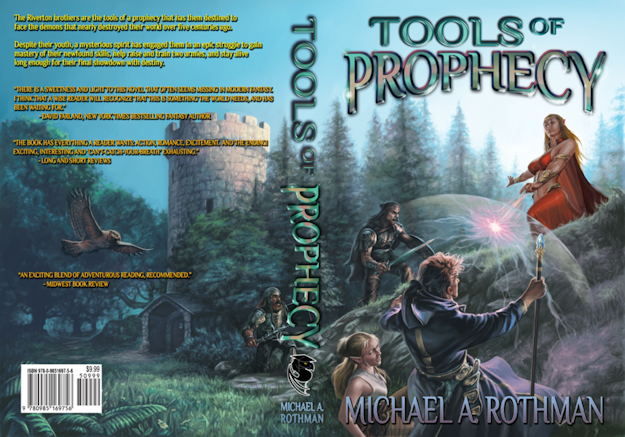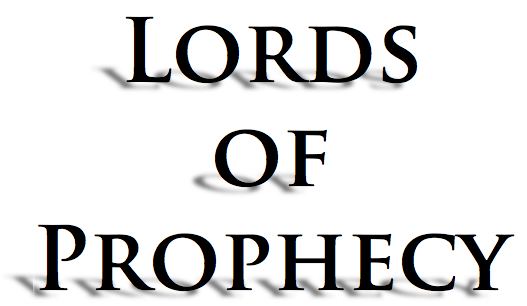Guest Post by Michael Rothman
Certainly the first major milestone in writing a novel is getting the first draft complete. Oddly enough, this is sometimes the best time to take a step back from the manuscript and give yourself a little time away from it.
The reason I say this is because when you want to go through your initial self-editing phase, you probably want to approach the manuscript as a reader. Try to get a bit of a separation from the book.
Ultimately, you aren’t writing for yourself (or typically you aren’t), you are writing for an audience and you want to scrutinize your novel as a reader would. Given that, there are many folks who can speak much more authoritatively about the editing phases than I can, but suffice it to say that self-editing is a skill that should be learned by any aspiring author, but that shouldn’t be confused with not needing an editor.
This leads me to the first of the five topics I wanted to cover.
“¢ Editors – the folks who find the booboos, clean up the scrapes in your manuscripts, and teach you lessons you didn’t know you needed to learn.
Despite my relatively fewer years in the industry, I’ve been lucky enough to have worked with some of the best editors in the industry, you know who you guys are [Betsy, Pat, Joshua]. Given that experience, I can say that without a doubt, any author who hasn’t put their manuscript through professional-level editing is likely doing their readers a disservice.
o Authors Behaving Badly
 How would you react if someone told you your child was ugly, and stupid? Not well I’d imagine.
Well, what do you think your reaction would be like when you toiled over a manuscript only to get it back from the editor awash in red ink?
Many people’s first reaction is to throw a fit, call the editor all sorts of names, and maybe throw the nearest object against the wall.
Let me recommend something a little different.
“¢ Consider the feedback, let it soak in, don’t write that nasty e-mail you were about to write, and wait a day or two.
o Authors are a defensive lot. In many cases, they find it difficult to accept criticism of their work.
o Let’s be realistic and say that unless you’ve hired a complete cretin as your editor, they likely make a point or two you should consider.
o Had you really achieved perfection in your manuscript, you wouldn’t need an editor, people would be waiting for your golden words to spill out as you type them.
 Realize that you don’t know it all
“¢ Something that sounds good in your head, oftentimes doesn’t sound nearly as good in the written form.
“¢ Editors will point out things that you were otherwise blind to. Many times it isn’t because you’ve written something grammatically incorrect; perhaps the editor noted that using the word amazing five times in a single paragraph might be a touch overkill. A thesaurus is sometimes an author’s best friend.
“¢ A professional editor is simply trying to improve your manuscript inasmuch as helping it flow better, sound better, and be more intriguing to the audience that you’ve chosen. For instance, I had an editor point out a certain scene in one of my current novels that might have been too much for the age group I was targeting. After a fair amount of consideration, I agreed with her. And that leads me to the next point about the author/editor relationship.
o It is the Author’s book, not the editor’s
 As an Indie author, you ultimately control the words in the book. When you are with a publishing house, some of that control is not absolute.
 If an editor gives you feedback, they are oftentimes giving you either specific items that they felt were wrong or inconsistent, or they were speaking in general terms. Either way, it is the author’s decision if and how they act on that feedback.
“¢ If you generally agree with the editor’s comment, then by all means, go ahead and fix it.
“¢ However, if you don’t agree with the editor’s comment, make the call that you feel suits the story best, because sometimes the editor simply isn’t right.
o I’d note that I probably take 80% of the editor’s comments and do “something” with them. They usually bring a unique perspective as a different kind of reader that is invaluable in assessing your writing and the manuscript as a whole.
o Editors are the ultimate teachers of writing lessons
 I’ve learned more about writing from having to deal with the editor comments than I’ve learned from writing entire novels. I can’t stress enough how important a good quality editor is. Find one and don’t let go.
“¢ Book Covers
o As an Indie author, you will find yourself in a position to control how your novel is presented to the world. In real life, we say that a first impression is always very important. Well, your book’s first impression will inevitably be its cover.
Given that, unless you are artistically inclined, you will likely need to consult with someone on the creation of this cover. What typically happens in the publishing houses is that publisher engages with an artist and hands them the story or a particular section of the story and oftentimes a scene from the manuscript is pulled to represent the book.
Below is an example of just such a scene in my second book, Tools of Prophecy.
You’ll notice that it is a landscape picture intended to serve as a cover for a print book, so the portion on the right would be the front cover, and the portion on the left would wrap around toward the back. In this case, the scene is from a climactic portion of the story that was pulled from the finalized story material.
Clearly, for an e-book, you wouldn’t need the complete picture, but only the right-hand portion of this. Below is an example of the same illustration, but finalized for production purposes.
“¢ ISBN Acquisition
An International Standard Book Number (ISBN) is something you’ll inevitably have to acquire to sell your book. This is typically used to uniquely identify a book. Kind of like your driver’s license number uniquely identifies who you are, the ISBN number identifies what book a buyer or seller is dealing with. I’d note that even with a single title of a book (e.g. Tools of Prophecy) it likely has at least four different ISBN numbers. One for its paperback edition, another for a hardcover edition, another for a Kindle e-book, and another for a Nook e-book.
A very common purveyor of ISBN numbers is a placed called Bowkers. You can buy a single ISBN number from them, or 1000’s. The author’s/publisher’s choice.
“¢ E-book formatting
One thing that isn’t obvious for most people is the need for special formatting in an e-book. Even though there are hundreds of articles that talk in detail about the formatting requirements, there are some software utilities that make things very simple, and I strongly recommend looking into them (especially since they are free.)
Look at one in particular; a software package called Calibre.
Another thing that I can comment on, that I’ve rarely seen mentioned in articles is the need for a manuscript (even when using Calibre) to be conscious of how they use fonts. For instance, I have on the title page, a font with shadow effects that I really like the look of.
However if I were to use it as-is, the Kindle/Nook platforms would make the title page look like garbage.
The trick for this is to take a screenshot of the font on your computer, and in the .doc file you use for your e-book creation, embed the screenshot of the title as a graphic. This way, the e-book viewers will read the content and not attempt to translate it in some funky manner. It will look like you want it to.
“¢ Distribution methods
At this stage, you’ve written the book, you’ve gone through editing phases, and your hired gun of an editor has kicked you in the teeth and you’ve recovered. You have a cover that you don’t hate, and you even have an ISBN number, and the formatting of your book is complete. Pant…pant…pant… it’s been a long haul.
As an Indie author, I believe 90%+ of the volume you’ll likely see will come from e-book sales.
Why? Well, e-books are typically cheaper than print books, and in most cases, you’ll find it difficult to get print books in front of the noses of purchasers. Those are the facts as I see them.
Given that, I do have a few recommendations.
- I’m a huge believer in the Amazon venue of distribution. No, I don’t own stock, nor am I an employee, nor do I know anyone who is one. From what I can tell, I’ve see easily ten times the volume of material goods moving through Amazon compared to its nearest competitor. I’ve seen this with my own books, and I’d guess others see similar things as well. That being said, I’ll only mention the three most commonly talked about distribution venues. Amazon, Barnes & Noble, and Smashwords. Google is your friend for details on each of these things, and in the smash allotted, I’d look up the keywords I mention here if they are unfamiliar.Even though I have seen a very distinct majority of sales through Amazon, that doesn’t mean I wouldn’t take advantage of other venues. I would certainly use Amazon’s KDP service (Kindle Direct Publishing) for making an e-book available. Also Barnes & Noble’s PubIt service is their equivalent of the same thing, just a slightly different technical format, both of which are supported by the Calibre software I mentioned earlier.
- I’m personally not a big fan of Smashwords, though many people use it because of its simplicity. They take an extraordinary amount of money for services that almost anyone can do themselves – especially if you’ve gone through the trouble of getting an editor, cover artist, etc – I don’t personally see the advantage of using Smashwords for general purpose distribution. I would limit their use to target distribution areas that aren’t already covered by Amazon or B&N. In truth, you likely won’t be missing much if you don’t use them at all, but that’s strictly my opinion.
I hope this has been helpful, and if there are any questions, just let me know. As it is, I’m nearly double the word count that Joshua asked me to stick to–but I don’t always listen to my editors.
Mike has had a long career as an engineer and has well over 200 issued patents under his name spanning all topics across the technology spectrum. He’s traveled extensively and has been stationed in many different locations across the world. In the last fifteen years or so, much of his writing has been relegated to technical books and technical magazine articles.
It was only a handful of years ago that his foray into epic fantasy started, but Mike is a pretty quick study. He’s completed a trilogy, has a prequel under consideration with editors, and is actively working on another series.
In the meantime, if you want to see his ramblings, he lurks in the following social media portals:
Twitter – @MichaelARothman, Facebook, his blog, and his books.



